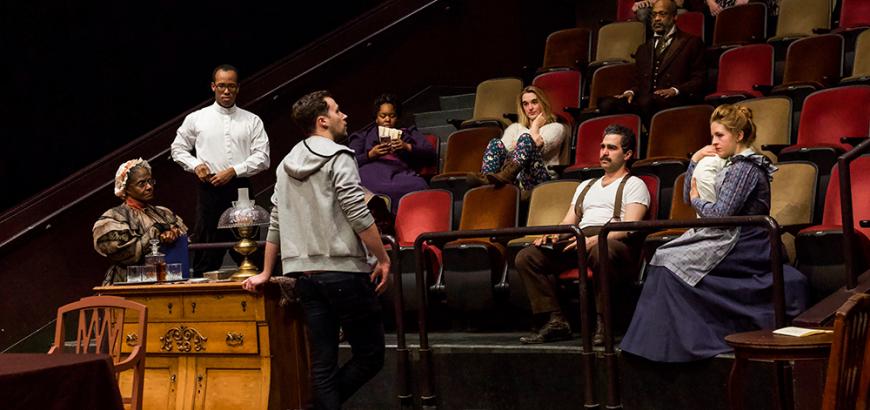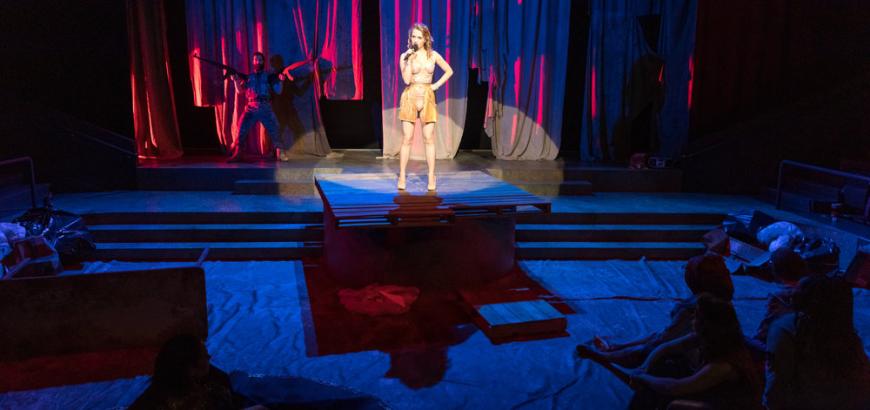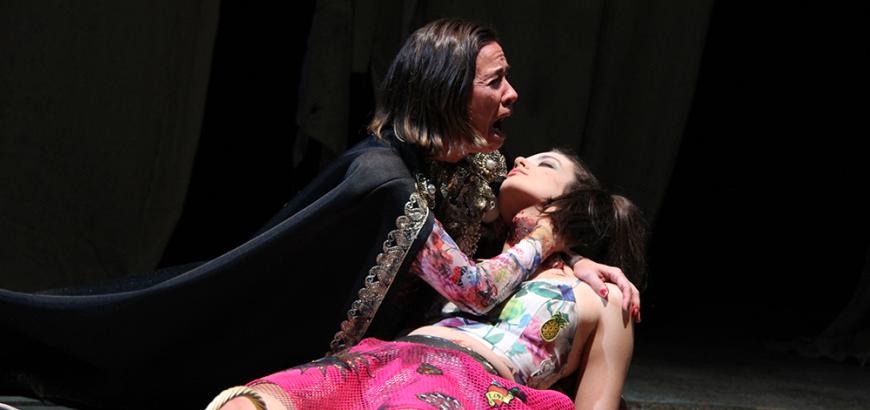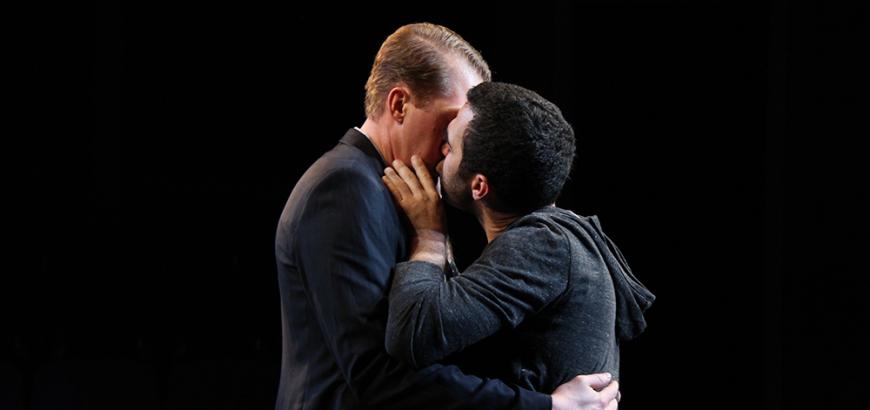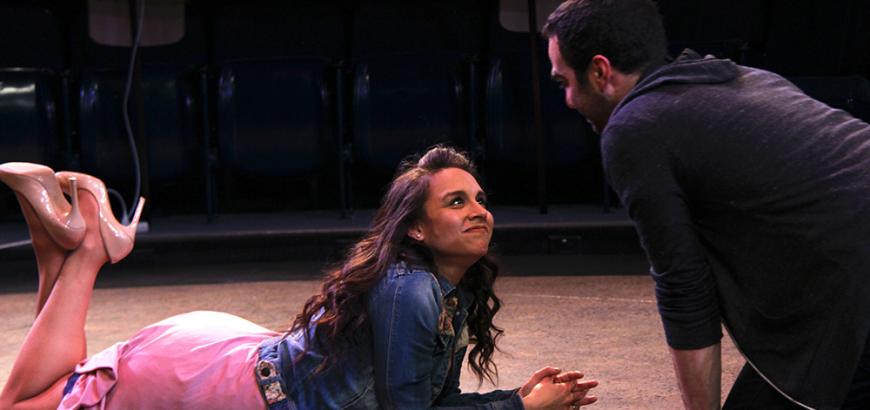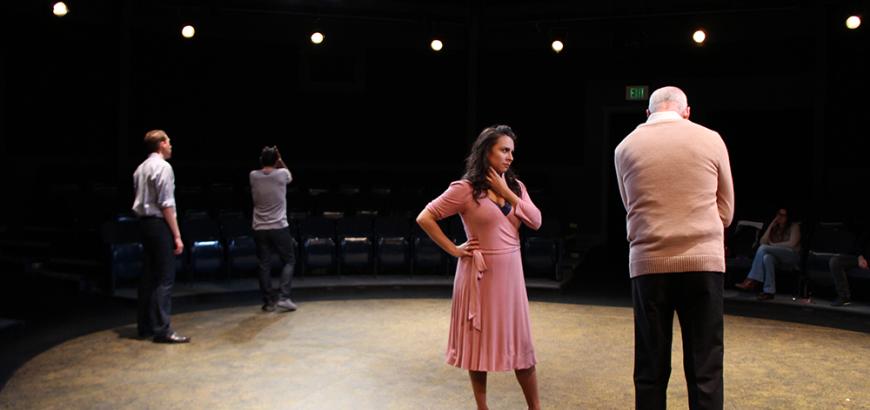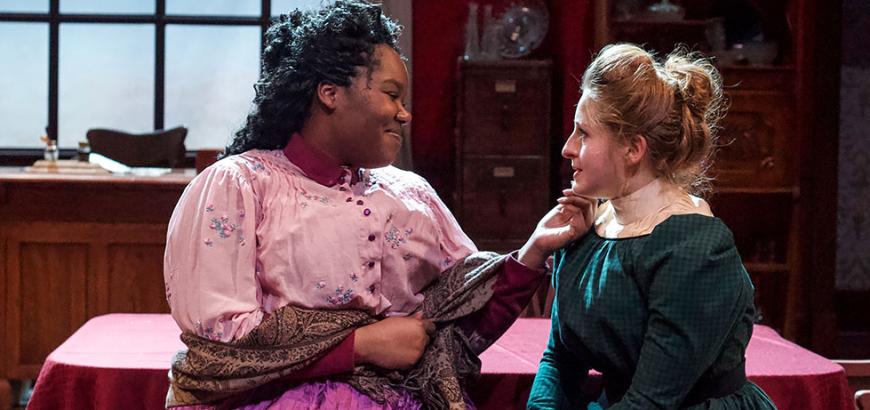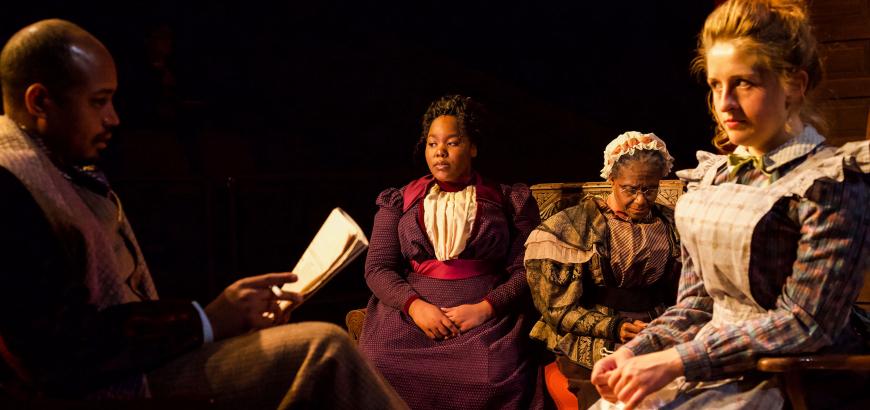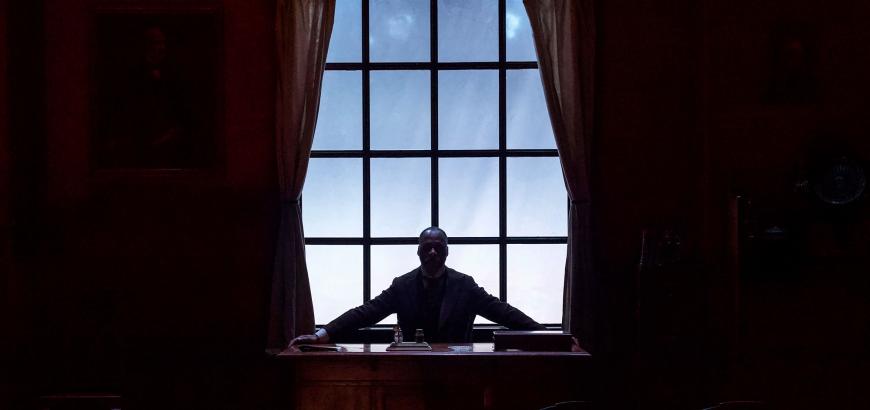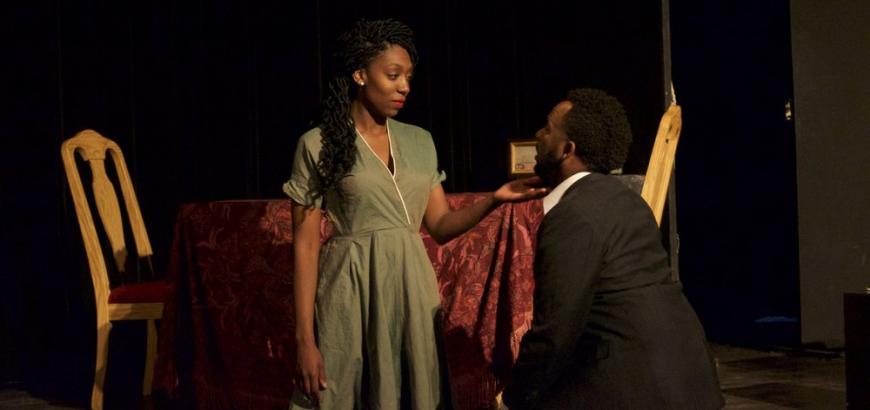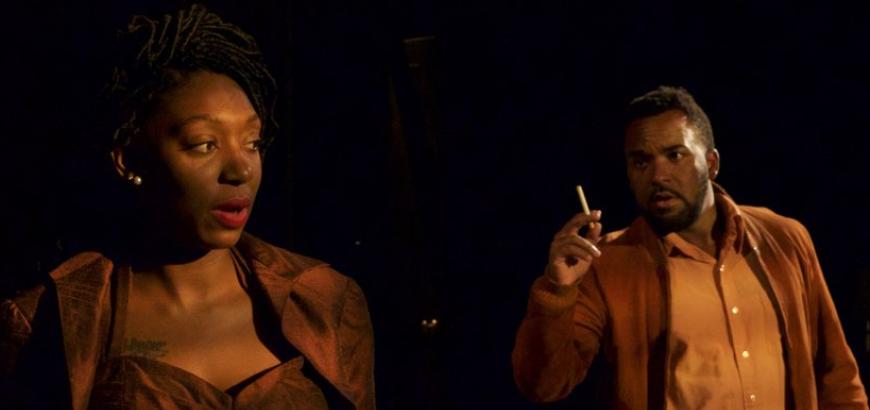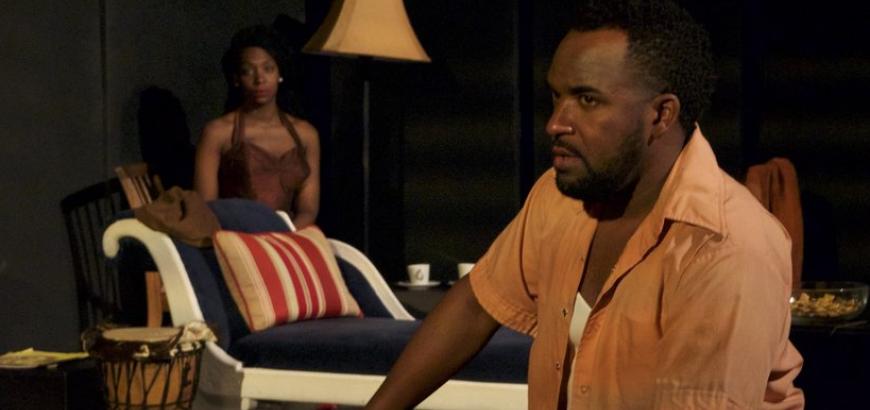From now until the end of the school year, we will be introducing and celebrating our graduating students, looking back on the work they've done during their time here, and sharing their reflections and wisdom as they head off into the professional world. Today our series continues with graduating MFA director Cody Holliday Haefner. Scroll through the slideshow to see some examples of Cody's work during his time here at UW!
What do you know now that you didn't know when you started this program? I think I’ve learned to put myself in a constant state of learning, which was a skill I developed that involved some cracking open of myself, I think. But it’s really important, as a person in the world but also as a director, to be constantly curious, to be constantly experimenting, to be constantly open to new ideas. And then, also, I’ve worked to be bolstering my own leadership skills, so that I can be in that constant state of learning, and then also make a decision when a decision needs to be made.
What are you most looking forward to doing now that you won't be in class or rehearsal for 12 hours a day?
I’m looking forward to spending some more time with my husband. I’m not exactly "looking forward to" but I’m thinking I will do a more equal and fair share of the chores, which will overall be good for my life and my relationship. (Laughs) I’m looking forward to seeing more theatre. And seeing more drag.
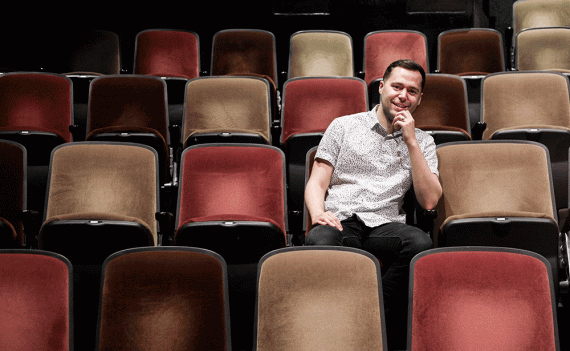
Any plans for after graduation?
My husband and I are moving to LA, which is an exciting adventure. I’m most looking forward to it because there are so many talented PATP [UW Drama's Professional Actor Training Program] actors there and I’m just looking forward to shaking up the LA theatre scene with an awesome pool of amazing artists down there.
Do you have a favorite memory from your time here?
Well this isn’t a favorite memory, but it was a really formative moment. In the first year, the directors take the design studio. We were all there super late on the night of the election, and just, like, slowly imploding as the results came out, and the next morning everyone’s work was horrible. But I remember that next morning, just the sense of camaraderie and the sense of, like, we’re gonna become the best artists we can over the next three years. And that morning in Suzuki, I remember Jeffrey [Fracé] talking about how the work just needs to become more muscular, and just putting that challenge forward to everyone. That was a good call to action. Not that I think—I think a lot of people here were already quite politically minded in the work, but to have that be the context of your three year graduate education was a particular kind of thing. It’s been good in that it's constantly pushing me to be more explicitly political in my work.
What advice do you have to someone following in your footsteps?
I think staying open to critique. It’s really easy to either turn critique in on yourself or to close it off, but you’re here for three years to learn, so that’s just like sabotaging that whole process. The opposite side of that coin is to give yourself credit for the good work that you do do. I think that’s the one I’ve had more challenge with over the course of grad school--to just like accept that all of the work is always going to be imperfect. I never thought of myself as a perfectionist, but I do think we hold ourselves to a standard. Especially when you want to say something political or personal with the work, [and then] you feel like something falls short, it’s easy to take that out on yourself or overly criticize yourself. But Val[erie Curtis-Newton] always says, "I am not my work," which I think is an important mantra. I did what I did with the amount of time that I have. Learning those lessons, and learning to recognize where the fear is the thing that’s sabotaging you. Those are the lessons to learn quickly.
How have you trained yourself to handle critique? I think for me, because I was committed to growing, it’s always just remembering that I want to get better, and I want to get better because my work is in service of a higher cause, and so I'm accepting critique and being open to critique so I can get better, so that my work can get better, so the world can get better. Then sometimes part of just taking the note is the issue of translating it. You'll get a piece of criticism and think, that really doesn't make sense to me or frankly I totally disagree with that. But I think it's important to learn to go the step further and translate the note to see if you can reframe it in a useful way. Obviously our faculty are brilliant and you want to mine the most from their advice. Same with your peers. So going past the step of, well that's just their taste or I think they're wrong about that, and acknowledging that any piece of feedback that you get is valid in a way, because it is letting you in on another person's perspective. And you have to investigate the gap between what you were intending to do with the art and what that person is receiving. And staying curious about that difference will almost always teach you something, even if the actual piece of feedback did not initially click with you.

